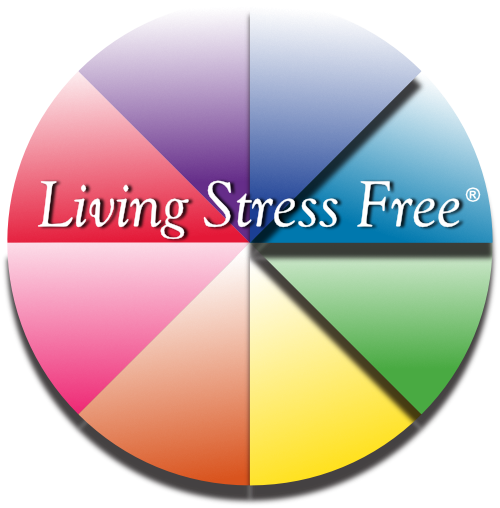I remember when I was a young girl hearing the famous 1970s commercial that touted “Calgon, take me away,” referring to powdered water softener. The commercial would feature a beautiful woman relaxing in her bathtub, taking a break from her chaotic household. It represented calmness, serenity, self-care and happiness, and everyone wanted to do the same! That phrase stayed with me as the quintessential image that represented getting away from life — escapism.
Escapism was popular then and it’s probably safe to say it is even more popular now. People work hard. There is a lot of stress in the world. It is perfectly natural to want to get away from all the stress. I have had clients who shared with me their short term disability fantasies – they secretly hope they get in a minor accident so they can get out of work and other responsibilities for a few months. To be honest, I had the same fantasy at times. But we don’t need to get hurt to take a break from life, now do we? That is why the first suggestion you will most likely receive from family, friends or professionals when you are feeling particularly stressed is to distract yourself from it. Escapism.
A friend recently sent me a great cartoon that featured three booths at a spiritual fair. One booth offered past life readings, another offered fortune telling for the future and the one in the middle advertised “Present Moment anyone?” As you might guess, the lines for the past life readings and fortune telling were very long and there was nobody in the present moment line. Of course! Most people don’t want to focus on the now when they can escape into the past or the future. In addition, all the thoughts that our mind is creating are about the past and the future, so it feels comfortable to indulge this tendency.
Here’s the problem with distraction, it is temporary. It is inefficient as well. We must metabolize thoughts, feelings and experiences just like we metabolize food. If we don’t, they stay inside like undigested food. This leads to accumulated stress that turns into negative states of mind in the future, unexplained anxiety and panic attacks, or even physical illness depending on how much accumulated stress is stuck inside. The best way to prevent this from occurring is to fully experience the present moment by staying in it, allowing the thoughts, feelings and actions that are in our experience to flow naturally. Distraction and escapism prevent this process from happening.
The mind has three tendencies that lead to cultivating stress reactions: attachment, aversion and ignoring. They are red flags of escapism. If you watch your mental tendencies when life is particularly challenging, you will notice your thoughts will gravitate to one of these three. You may get fascinated with your attachments. Those who have addiction issues for example, will nurture and honor their addiction more when they are stressed because it is distracting them from what is really wrong in their life. Others indulge aversion. They focus on how much they dislike certain people and blame them for all the problems in life. The truth is, this is escapism, and a distraction from the real issues in the person’s life. The mental tendency to ignore is the most obvious version of escapism. You put the blinders on and don’t look in that direction. Beware of these red flags because they block the ability to digest the reality of the present moment, as it is.
If most people recommend distraction as a coping strategy to life and it is only a temporary solution, what can be done as a permanent solution to eradicate the stress reactions life presents? The answer is being fully aware of thoughts, feelings and actions, allowing them to naturally unfold with each situation that happens as the day progresses. That is the key. If you feel anger, allow yourself to feel angry. By blocking it, the anger gets stuck inside. If you are grieving, allow the grief to be honored. If you are incredibly happy, express it! Do the same with your thoughts. Allow the thoughts to arise into your awareness but also allow them to leave. The only reason the thoughts will stay is if you choose to hold onto them. Even if the thought is disturbing, remember it is just a thought – it isn’t a fact. It can’t hurt you. A thought is just a vibration of energy having its moment. Think of it like a firefly intermittently lighting up as you walk through the woods at dusk. Our thoughts are like fireflies.
Inevitably you may be wondering “what if I get sad or angry at work? I can’t express that in front of everyone. It will interfere with my job.” This is an unavoidable reality and the answer depends on the intensity. If your feelings are on a softer level, you can let yourself feel in the midst of your work. If you needed to, you could take a few minutes to yourself to surrender to the emotion, compose yourself and go back to the task at hand. However, if the feelings are too intense, self-care is paramount. You may need a temporary escape or distraction to help you finish your responsibilities. The important point is to allow the expression of the emotions when you are somewhere appropriate to do that. There also may be times you need to take a day off and just allow the inner storm to flow. That is what mental health days are all about.
Another way to combat escapism is to see the different sides to every situation – changing your perception of the situation. I remember years ago when traveling on the Garden State Parkway with my family, my father driving, witnessing a car speeding like mad past us in the other lane, cutting off another driver, tearing down the highway. My parents would comment nasty remarks about the driver, as most people do who have driven in New Jersey for any length of time. I would then start coming up with different scenarios for why the person was speeding: maybe he is rushing to get to the hospital, maybe he is very late for work and is afraid to get fired, maybe he needs to get to a special family event such as a wedding and is in danger of missing it? My father would eventually start smiling and the stress reaction of the moment dissolved. In the same way, you can stay fully present and entertain alternate solutions and explanations for absolutely everything if you allow yourself to do this.
This method can also be used with your own emotions. There is a benefit as well as a deficit to all the emotions. Anger is seen as bad, but anger also energizes. Depression and sadness are dreaded, but when you experience them you catch up on your rest. Happiness is seen as golden, but it can lead to getting lost in elation and losing awareness of the present moment because the feeling of happiness is so enjoyable. Mistakes can then occur. If good and bad are taken off the table, we can see the different sides to all thoughts, feelings and experiences. Judging, comparing and deciding there is a hierarchy of emotional states and thoughts can be detrimental to managing and preventing worry and stress reactions. Perceiving all thoughts, all feelings, and all behaviors as neutral is the key to letting them pass. If you believe there are good thoughts and bad thoughts, good feelings and bad feelings, how can you let the mental states you are in just pass? You will instead be stuck in attachment, aversion or ignoring. Then the only answer is escapism.
There is an ancient Taoist story of an old farmer who had worked his crops for many years. One day his horse ran away. Upon hearing the news, his neighbors came to visit. “Such bad luck,” they said sympathetically. “May be,” the farmer replied.
The next morning the horse returned, bringing with it three other wild horses. “How wonderful,” the neighbors exclaimed. “May be,” replied the old man.
The following day, his son tried to ride one of the untamed horses, was thrown, and broke his leg. The neighbors again came to offer their sympathy on his misfortune. “May be,” answered the farmer.
The day after, military officials came to the village to draft young men into the army. Seeing that the son’s leg was broken, they passed him by. The neighbors congratulated the farmer on how well things had turned out. “May be,” said the farmer.
For many people, escapism is a way of life. I have worked with clients who keep themselves so busy from morning to night they don’t have time to feel. They work and work and work, and often get involved with gossip, dramas or fears about people in their life because they are fueling attachment and aversion while they ignore the rest. Human beings have been given the precious gift of being able to feel so many emotions and to use thoughts and feelings to enhance each moment of life as a continuous learning experience. We were born to learn, grow, thrive and progress toward a greater version of ourselves as we share our existence with others. Many great teachers and enlightened masters have stated a human birth is rare and precious. If a person avoids presence and lives in the realm of distraction and escapism, how can his or her potential ever be realized?
Working in the mental health field, I have seen that escapism rules. It not only is a distraction technique, it becomes an identity and a goal for many people who suffer from stress overload. From my experience, the main reason people default to distraction and escapism is the present moment is being avoided. The present moment is too painful, too stressful or too boring to pay attention to. The present is just not interesting enough. The past is way more interesting for people to immerse their attention. They identify with the past and get stuck there. Or, there are some who are so focused on the future they forge ahead with a superficial euphoria about the life they are creating in their mind that may or may not manifest because it is uncertain. And then there are those who control the present by covering it up with a distraction such as overworking, overindulging, alcohol and drug use, sex addiction, overspending, over exercising, self-harm, and other unhealthy patterns. The ultimate escapism from this unhealthy perspective is suicide.
If only the people who choose unhealthy distractions would be aware of the transitory nature of life, they may not continue to follow these unhelpful patterns. Whatever pain, suffering, uncomfortableness or stress a person feels, it will pass. Just knowing this on an intellectual level is not enough. It has to be experienced. That is why distraction techniques cannot be the only coping strategies available. Using techniques that are based on the internal experience that everything comes and goes is the most helpful way to manage and prevent stress. Techniques such as nondirective meditation, yoga, tai chi, and music-sound therapy can cultivate an experience of being grounded and centered in the present revealing the transient nature of existence.
Life is difficult, to say the least. The most common antidote for most people is distraction and escapism. Why not try a different tactic? For the next week, allow yourself to experience the moment, be in the midst of the now. It’s a brave path that can be so rewarding. Allow yourself to be open, vulnerable, and curious. Make a conscious decision to be here now and let go of attachment, aversion and distraction. Embrace the present and experience reality. You might find it’s not so bad.

